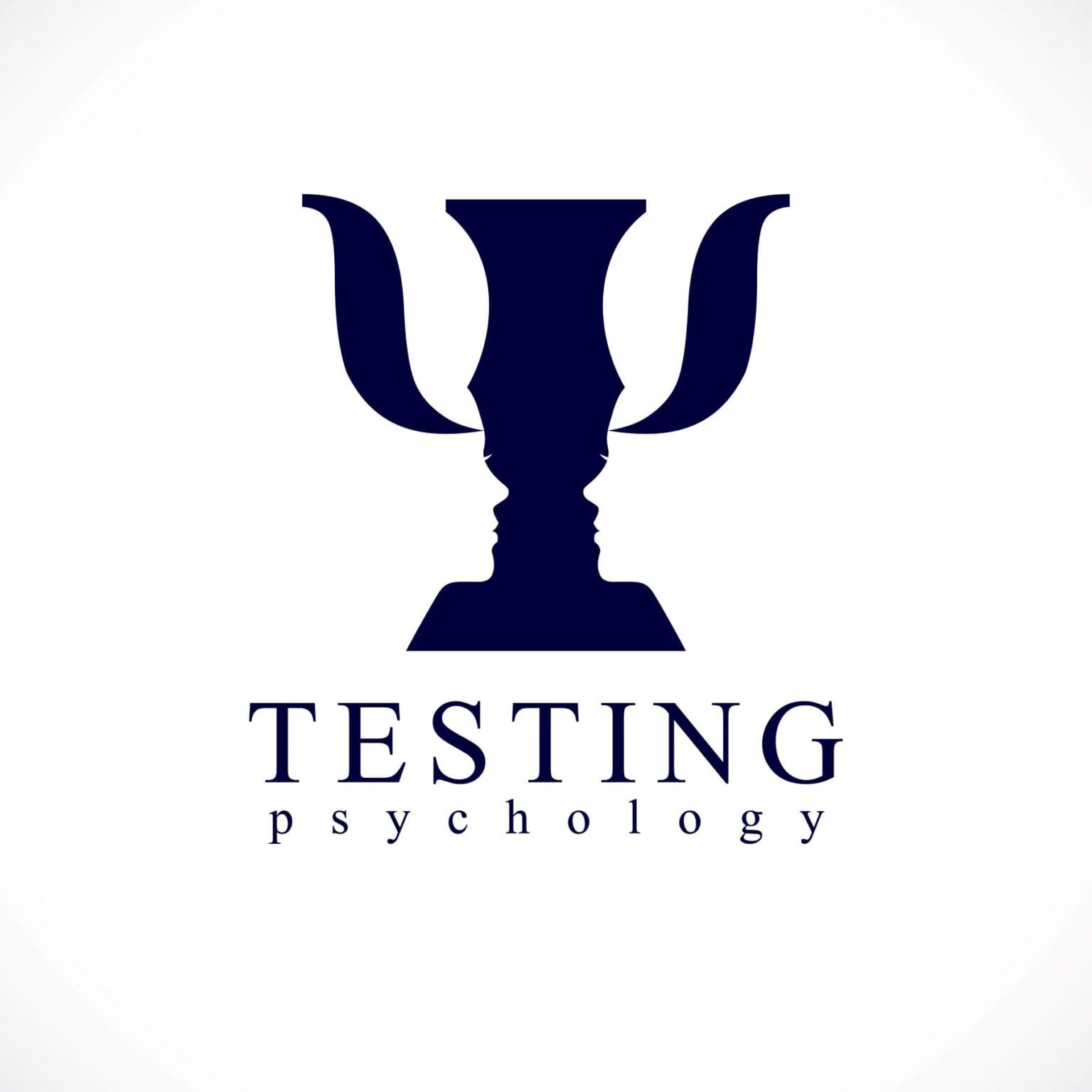
Understanding Psychological Assessment
Psychological assessment is a comprehensive process that provides insights into an individual’s cognitive abilities, emotional functioning, and behavior. At Dr. Ginny Estupinian’s office, we use a combination of standardized tests, clinical interviews, and behavioral observations to create a holistic picture of your psychological well-being.
What Psychological Assessment Is:
 A systematic method for gathering data about psychological functioning
A systematic method for gathering data about psychological functioning- A multi-faceted approach using various tools and techniques
- A valuable resource for informing diagnosis and treatment planning
- A means to track progress and adjust interventions as needed
What Psychological Assessment Is Not:
- A quick solution to complex psychological issues
- A substitute for ongoing therapy or medical treatment
- A definitive predictor of future behavior or success
- A one-size-fits-all approach to mental health
Mood Disorder Assessments
Depression Assessment
Depression can manifest differently based on age, gender, and cultural background. Our comprehensive assessment includes:
- Evaluation of key symptoms (e.g., persistent sadness, loss of interest, fatigue)
- Exploration of potential triggers (e.g., loss, major life changes)
- Analysis of impact on daily functioning and relationships
- Consideration of physical health factors
Anxiety Assessment
We assess various forms of anxiety, including generalized anxiety, social anxiety, and specific phobias. Our process involves:
- Evaluation of physical symptoms (e.g., rapid heartbeat, sweating)
- Assessment of cognitive patterns (e.g., excessive worry, catastrophizing)
- Analysis of behavioral changes (e.g., avoidance, sleep disturbances)
- Exploration of anxiety triggers and maintaining factors
Panic Attack Assessment
As a severe form of anxiety, panic attacks receive special attention in our assessments:
- Detailed analysis of attack frequency, duration, and intensity
- Identification of physical and emotional symptoms during attacks
- Evaluation of impact on daily activities and quality of life
- Assessment of avoidance behaviors related to panic
Bipolar Disorder Assessment
Bipolar disorder involves complex mood patterns. Our thorough assessment includes:
- Evaluation of manic/hypomanic symptoms (e.g., decreased sleep need, increased goal-directed activity)
- Assessment of depressive episodes and their characteristics
- Analysis of mood cycling patterns and their impact on functioning
- Consideration of family history and potential triggers
Neuropsychological Assessments For Adults
Our adult neuropsychological assessments explore the relationship between brain function and behavior, offering valuable insights for various conditions.
Adult ADHD Assessment
Finally Getting Answers: ADHD Diagnosis in Adulthood

Many adults live for years—even decades—with undiagnosed ADHD, struggling silently with challenges they’ve been told are character flaws or personal failings. Perhaps you’ve been called “lazy,” “unmotivated,” or “scatterbrained” your entire life. Maybe you’ve developed elaborate coping mechanisms that are no longer working. Or perhaps you’ve watched your child get diagnosed and suddenly recognized yourself in their symptoms.
You’re not alone, and it’s never too late to get answers.
.
How ADHD Shows Up in Adults
Adult ADHD often looks different than the stereotypical hyperactive child. While some adults do experience physical restlessness, many present with what we call “inattentive type” ADHD. Common experiences include:
At Work:
- Chronic procrastination, especially on important tasks
- Difficulty starting projects despite good intentions
- Missing deadlines or rushing to complete work at the last minute
- Trouble staying focused during meetings or while reading emails
- Frequent job changes or feeling underemployed relative to your abilities
- Overwhelming sense of “spinning your wheels” without making progress
In Relationships:
- Forgetting important dates, conversations, or commitments
- Appearing distracted or not listening when your partner talks
- Impulsive decision-making that affects the household
- Emotional reactivity or difficulty regulating frustration
In Daily Life:
- Chronic lateness despite your best efforts
- Losing or misplacing important items (keys, wallet, phone)
- Starting multiple projects but finishing a few
- Difficulty with routine tasks like paying bills or managing the household management
- Feeling mentally exhausted from trying to stay organized
- Relying heavily on others to help you stay on track
Why Many Adults Are Diagnosed Late
ADHD in adults often goes unrecognized for several reasons:
High Intelligence Can Mask Symptoms: Many adults with ADHD are very intelligent and developed compensatory strategies throughout school, so their struggles weren’t obvious until work or life demands exceeded their coping capacity.
Inattentive Type is Less Obvious: Without the hyperactivity component, teachers and parents may have missed the signs, especially in girls and women who were simply labeled “daydreamers” or “spacey.”
Previous Misdiagnosis: Many adults were diagnosed with depression or anxiety (which can co-occur with ADHD) but the underlying attention disorder was never identified.
Different Presentation in Women: Women with ADHD often internalize their symptoms as anxiety or low self-esteem rather than recognizing attention difficulties. They may have been praised for being “quiet” while struggling internally.
Life Structure Changes: College or early career may have provided enough structure, but as responsibilities increased (career advancement, family, managing a household), coping strategies broke down.
Our Comprehensive Adult ADHD Assessment
Dr. Estupinian’s assessment goes far beyond a simple symptom checklist. We provide a thorough evaluation that distinguishes ADHD from other conditions that can cause similar symptoms, such as anxiety, depression, sleep disorders, or stress.
Adult ADHD Assessment
Many adults struggle with undiagnosed ADHD. Our assessment process includes:
- Comprehensive evaluation of attention, impulsivity, and hyperactivity symptoms
- Exploration of childhood history and symptom development
- Analysis of impact on work performance, relationships, and daily life
- Assessment of coping strategies and compensatory mechanisms
Concussion & Traumatic Brain Injury (TBI) Assessment
TBI can have wide-ranging effects on cognitive and emotional functioning. Our assessment involves:
- Detailed evaluation of attention, memory, executive functions, and processing speed
- Assessment of emotional and behavioral changes post-injury
- Integration with medical history and imaging results
- Tracking of symptom progression and recovery over time
Memory & Cognitive Assessment
When Memory Concerns Deserve Attention
“Where did I put my keys again?” “What was I about to say?” “I walked into this room for a reason…”

We all have these moments. But when memory lapses become more frequent, when you notice changes in your thinking or mental sharpness, or when loved ones express concern about your cognition, it’s natural to worry. Is this normal aging? Early signs of something more serious? Stress? A medical issue?
A comprehensive memory and cognitive assessment provides clarity, peace of mind, and a roadmap forward—whatever the results reveal.
You’re Not Alone in Your Concerns
Memory and cognitive concerns affect people across all adult age groups, and the causes vary widely. What matters is getting an accurate assessment from a qualified professional who can distinguish between normal variations, treatable conditions, and signs that warrant medical attention.
Who Should Consider Memory Testing?
Adults in Their 40s and 50s
You might notice:
- Increased forgetfulness compared to your younger years
- Difficulty recalling names or words mid-conversation
- Taking longer to learn new information or skills
- Struggling to multitask the way you used to
- “Mental fog” that interferes with work performance
- Concerns that stress or perimenopause/menopause is affecting your cognition
- Family history of early-onset dementia or Alzheimer’s
Why test now? Establishing a baseline of your cognitive functioning in midlife is valuable for future comparison. Many cognitive changes at this age are related to stress, sleep issues, hormonal changes, or medical conditions—all of which are treatable.
Adults 60 and Older
You might be experiencing:
- More noticeable memory lapses than seem “normal” for your age
- Difficulty managing finances, medications, or household tasks that were once routine
- Getting lost in familiar places or forgetting how to get somewhere you’ve been many times
- Repeating questions or stories more frequently
- Increased difficulty finding words or following conversations
- Family members expressing concern about changes they’ve noticed
- Worry about dementia due to family history
Why test now? Early detection of cognitive changes enables earlier intervention, more effective planning, and access to treatments that may slow the progression. Many conditions that cause memory problems are treatable if caught early.
After a Medical Event or Diagnosis
Memory and cognitive testing are important if you’ve experienced:
- Stroke or mini-stroke (TIA)
- Cancer treatment (chemotherapy, radiation)
- Cardiac surgery or major medical procedures
- Significant head injury or concussion
- COVID-19 infection with persistent “brain fog”
- Chronic conditions affecting the brain (diabetes, heart disease, sleep apnea)
- Medication changes that coincide with cognitive symptoms
Why test? Understanding how a medical condition or treatment has affected your cognition helps guide rehabilitation, accommodations, and treatment decisions.
Anyone Experiencing Concerning Changes
Seek assessment if you notice:
- A noticeable decline from your previous level of functioning
- Cognitive problems interfering with work, driving, or daily activities
- Memory issues accompanied by mood changes, personality shifts, or behavioral changes
- Sudden or rapid cognitive decline (weeks to months)
- Concerns from family members or physicians
Our Comprehensive Memory & Cognitive Assessment

Dr. Estupinian’s evaluation provides a thorough analysis of your cognitive functioning across multiple domains, not just memory.
IQ Testing for Children
Dr. Ginny Estupinian’s office provides comprehensive IQ testing for children, which is often required for admission to private schools or to assess a child’s cognitive abilities. We use gold-standard assessments that offer detailed insights into a child’s intellectual capabilities.
Private Schools We Provide Testing For
Dr. Estupinian’s office is approved to conduct IQ testing for several prestigious private schools in the area, including:
- The Harker School

- The Nueva School
- Helios School
- No Specific School
It’s important to note that you do not need to be applying to a specific school to have your child tested. Many parents choose to have their children evaluated simply to better understand their cognitive abilities and potential.
The Gold Standard of Child IQ Testing
There are two primary tests used depending on the child’s age:
WPPSI-IV (Wechsler Preschool & Primary Scale of Intelligence Fourth Edition)
- Age Range: 2 years 6 months to 7 years 7 months
- Evaluates: Verbal skills, reasoning abilities, working memory, and processing speed
- Based on up-to-date theories and research in child cognitive development
- Allows comparison of a child’s scores to those of other children in their age group
WISC-V (Wechsler Intelligence Scale for Children Fifth Edition)
- Age Range: 6 years to 16 years 11 months
- Assesses: Verbal comprehension, visual-spatial skills, fluid reasoning, working memory, and processing speed
- Provides a comprehensive evaluation of a child’s cognitive abilities
- Enables comparison with a large sample of children of the same age and gender
Benefits of IQ Testing For Children
- School Admissions: Many private schools require these tests as part of their admission process.
- Understanding Your Child: Gain insights into your child’s cognitive strengths and areas for growth.
- Educational Planning: Use results to inform personalized learning strategies.
- Gifted Program Qualification: Identify if your child qualifies for gifted education programs.
- Mensa Membership: These tests are accepted as part of the requirements for membership in the American Mensa Organization.
Testing Without School Application
We want to emphasize that IQ testing is available to all parents, regardless of whether you’re applying to a specific school. Many parents choose to have their children evaluated to:
- Gain insights into their child’s cognitive strengths and areas for growth
- Inform personalized learning strategies at home or in their current school
- Explore potential giftedness or learning differences
- Prepare for future educational decisions
This option allows you to obtain valuable information about your child’s cognitive abilities without the pressure of a school application process.
Mensa Organization Applications
For children who achieve the required score, we can send a copy of the report directly to the American Mensa Organization to support their membership application. Please note that an additional processing fee applies for this service.
Making the Process Easy for You and Your Child
We strive to make the IQ testing process as convenient and stress-free as possible. Our staff will work with you to schedule the assessment at a time that suits you and your child.
The Benefits of Our Assessments
- Obtain objective, standardized data about psychological functioning
- Confirm or refine clinical impressions to guide treatment
- Measure progress and treatment effectiveness over time
- Identify specific strengths and weaknesses to inform personalized interventions
- Provide documentation for educational or workplace accommodations when necessary
Our Approach: Personalized and Comprehensive
Dr. Ginny Estupinian prioritizes creating a supportive, comfortable environment for all assessments. Her process is designed to be thorough and client-centered:
- Initial Consultation: Dr. Estupinian will discuss your concerns, goals, and relevant history to tailor the assessment process.
- Comprehensive Evaluation: Using a combination of standardized tests, interviews, and observations, she will gather detailed information about you.
- Thorough Analysis: Dr. Estupinian will carefully analyze the results, taking into account all relevant factors.
- Detailed Reporting: Dr. Estupinian will provide a comprehensive report outlining findings, diagnoses (if applicable), and specific recommendations.
- Feedback Session: Dr. Estupinian will schedule a follow-up to discuss results, answer questions, and collaboratively plan next steps.
- Ongoing Support: Dr. Estupinian will offer guidance on implementing recommendations and can coordinate with other healthcare providers or educators as needed.
Take the Next Step
Whether you’re seeking clarity about mood disorders, cognitive functioning, or your child’s intellectual capabilities, our assessments provide valuable insights to guide your path forward.
Contact us today to schedule an initial consultation and begin your journey toward greater understanding and improved well-being.
Call Today 844-802-6512
Dr. Ginny Estupinian, Ph.D., ABPP, is a board-certified clinical psychologist with over a decade of experience in psychological and neuropsychological assessment. Trust in our expertise to provide the insights you need for a brighter future.
Frequently Asked Questions
Questions About Adult ADHD Assessment
“What if I did fine in school? Can I still have ADHD?” Absolutely. Many intelligent adults with ADHD succeed in structured school environments but struggle with the demands of adult life. High IQ often masks ADHD symptoms until demands exceed coping capacity.
“I’m successful in my career. Could I really have ADHD?” Yes. Many adults with ADHD are high achievers who have worked twice as hard to compensate for their challenges. Success doesn’t rule out ADHD—but it may explain why that success has come at the cost of exhaustion.
“What if my symptoms are ‘just’ anxiety or stress?” That’s exactly what the assessment determines. Anxiety and ADHD can look similar and often co-occur. A thorough evaluation clarifies what’s driving your symptoms.
“I wasn’t hyperactive as a child. Can I still have ADHD?” Yes. Inattentive-type ADHD doesn’t involve hyperactivity. You may have been the quiet child who daydreamed or seemed “in your own world.”
“What if the testing confirms my worst fears?” While this concern is understandable, most people find that knowing the results, whatever they may be, is better than living with worry and uncertainty. Many cognitive problems have treatable causes, and even when they don’t, having accurate information allows for better planning and care.
“Will testing be stressful or tiring?” We design the assessment to be as comfortable as possible, with breaks as needed. While testing requires mental effort, it’s not meant to be overwhelming. Our goal is to understand how you function, not to create additional stress.
Common Questions About Memory Assessment
“What if the testing confirms my worst fears?” While this concern is understandable, most people find that knowing the results, whatever they may be, is better than living with worry and uncertainty. Many cognitive problems have treatable causes, and even when they don’t, having accurate information allows for better planning and care.
“Will testing be stressful or tiring?” We design the assessment to be as comfortable as possible, with breaks as needed. While testing requires mental effort, it’s not meant to be overwhelming. Our goal is to understand how you function, not to create additional stress.
“How is this different from the quick screening my doctor did?” Brief office screenings help identify obvious problems, but they miss subtle changes. Our comprehensive evaluation is much more sensitive and provides detailed information about specific cognitive strengths and weaknesses.
“What if my results are normal? Was testing a waste?” Not at all. Normal results provide reassurance, establish a baseline for future comparison, and may still reveal factors (like stress or sleep issues) that you can address to feel better. Many people find tremendous relief in learning that their cognitive abilities are normal for their age.
“My family thinks I should be tested, but I don’t think there’s a problem. Should I still do it?” Sometimes people close to us notice changes before we do. Testing can objectively show whether their concerns are warranted or provide reassurance that you’re functioning well. Either way, it resolves the disagreement with objective data.
Common Questions About Child IQ Testing
About the Testing Process
Q: How long does IQ testing take for my child?
A: The testing session typically takes 1.5 to 2.0 hours. We build in breaks to ensure your child stays engaged and performs their best. The process is designed to be comfortable and even enjoyable for most children. Many children find the activities interesting.
Q: How should I prepare my child for testing?
A: The best preparation is actually very simple:
- Ensure good sleep: Make sure your child gets a whole night’s rest before the testing day.
- Provide a good meal: Feed your child a healthy breakfast or lunch before the appointment.
- Keep it low-pressure: Explain that they’ll be doing some puzzles, answering questions, and playing “thinking games” with a nice psychologist. Avoid saying things like “this is very important” or “you need to do your best,” which can create anxiety.
- Be positive: Frame it as something interesting, not scary
- What NOT to do: Don’t drill your child with practice questions, flashcards, or try to “prep” them for the test. IQ tests are designed to measure innate abilities, and teaching specific content can actually interfere with accurate results
Think of it like going to the eye doctor. You wouldn’t practice reading the eye chart beforehand because that would defeat the purpose. We want to see how your child naturally thinks and solves problems.
Q: Can my child “fail” an IQ test?
A: No, absolutely not. IQ tests don’t have pass/fail scores. They simply measure your child’s cognitive abilities relative to other children their age. Every child has their own unique profile of strengths and weaknesses, and that’s exactly what we’re looking to understand. The results provide valuable information about how they learn and think. There’s no “failure”—only information that helps you and the school understand your child better.
Q: What if my child doesn’t cooperate or has a bad day?
A: We’re experienced in working with children of all temperaments and ages. If your child is having a tough day (illness, extreme fatigue, high anxiety, or refusing to participate), we’ll discuss whether to pause the testing and reschedule. Our goal is to capture your child’s actual abilities, not their performance on a bad day. We’ll also note in our report any factors that may have affected the results, such as limited cooperation, high anxiety, or health issues. Testing is most accurate when your child is feeling well, rested, and relatively comfortable.
Q: Will I be in the room during testing?
A: Parents wait in our comfortable waiting area while testing occurs. This helps children focus.
About Test Results
Q: When will I receive the results?
A: You’ll receive a comprehensive written report typically within A few days after the testing session. After the testing date, we’ll schedule a feedback session to review the results with you in detail, answer your questions, and discuss recommendations. If you need results by a specific deadline (such as a school application due date), please let us know when scheduling so we can prioritize accordingly.